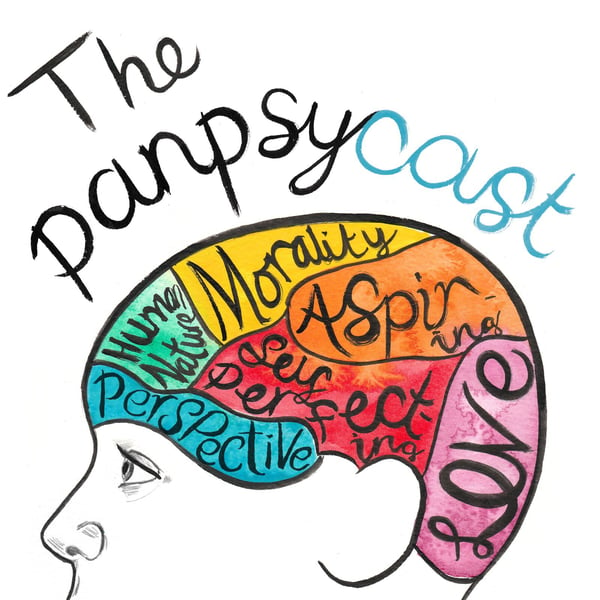Episode 28, Aristotle's Nicomachean Ethics (Part IV)
The Panpsycast Philosophy Podcast
Jack Symes | Andrew Horton, Oliver Marley, and Rose de Castellane
4.8 • 604 Ratings
🗓️ 3 December 2017
⏱️ 56 minutes
🧾️ Download transcript
Summary
Everything you could need is on www.thepanpsycast.com! Please tweet us your thoughts at www.twitter.com/thepanpsycast. The Nicomachean Ethics is Aristotle’s (384 – 322 BC) best-known work on ethics. The work consists of ten books and is understood to be based on Aristotle’s lecture notes. These notes were never intended for publication. Sometimes his notes are merely cues to talk more generally about a subject, other times they are more representative of what Aristotle would have actually said to his students. The Nicomachean Ethics is amongst the most discussed texts in history and philosophers continue to debate its contents and intended purposes today. One cannot deny, however, that Aristotle’s Nicomachean Ethics is concerned with key political and ethical questions – Questions like, How can we do what is best for citizens? and What is the good life and how do we achieve it? Part I. Aristotle’s Approach and Fundamental Arguments (start of Part I), Part II. Virtue as Excellence (start of Part II), Part III. Book X and Application (start of Part III), Part IV. Further Analysis and Discussion (start of Part IV).
Transcript
Click on a timestamp to play from that location
| 0:00.0 | Part 4. Further analyses and discussion. Right, let's jump on board the further analysis bandwagon and we'll kick off |
| 0:24.1 | with a few criticisms. We've built up for theory. Let's rip it to shreds in everyone's favorite part of |
| 0:29.6 | the show. Okay, so let's start off with the virtues. Now, obviously, we've been talking about the |
| 0:34.0 | virtues, this idea of excellence. So the criticism I want to kind of put out |
| 0:39.2 | there is, okay, that's fine, the idea of courage, you know, I would say courage is a good thing, |
| 0:43.9 | loyalty is a good thing, etc, etc. But what happens if these virtues clash with each other? |
| 0:50.4 | So let's take the example we looked at before with the car. So let's say Andy and Jack are in the car. |
| 0:55.3 | What if the virtue of courage is conflicting with Andrew's loyalty to Jack as a friend? |
| 1:02.4 | So, you know, maybe as his friend, he wants to defend him more than he should courageously just, you know, drive away. |
| 1:09.1 | How does that work? It seems very vague. And if the |
| 1:12.9 | virtues clash, how do you ultimately justify your action? I mean, that's only two virtues. |
| 1:19.8 | Imagine if you're in a situation where you've got three or four conflicting virtues. How are you |
| 1:23.3 | supposed to behave? There doesn't seem to be any real guidance here on what you should actually do. What is the correct decision to make? Can I just give a... I was going to jump in as well, but after you. Yeah, well, I was just, I was going to say, like, I guess the answer that Aristotle would give with that is that the truly virtuous person would actually know what is the best, like, I guess if there was to have to pick a choice, |
| 1:45.8 | they would know what was best to do in that situation because they had habitually |
| 1:49.4 | ingrained, like, just a practical sense of, you know, what can I get out of this situation? |
| 1:54.3 | Because, yeah, you're not going to be able to please everybody, |
| 1:57.1 | but you would know practically what is the best result to get. |
| 2:00.2 | But again, we have to be this virtuous person already, And it seems like this vague tortology with Aristotle, i.e. that if Ollie isn't virtuous already, then he won't know what to do in the situation. So we've read this book of ethics and we don't seem to have got anywhere. No, I mean, that's the thing. Well, I mean, this wasn't the criticism I was directly going to give, but I might as well say it on the top of this, which is that this is not a guide of like how to act. This is a guide of like how it would be good to train you to act. Like you, you're not going to get much from this. If you're reading this as an adult, it's |
| 2:35.2 | far as a far as often, it might be too late. Yeah. And which is what? That leads to another |
| 2:38.8 | criticism. Okay, well, what's the point then? Most people, yeah, is it just educating the |
| 2:43.4 | young people who have time to develop these virtues? If you're already, if you're sitting in your |
| 2:47.7 | 60s, you know, are you able to actually have the time to embed these virtues? |
... |
Please login to see the full transcript.
Disclaimer: The podcast and artwork embedded on this page are from Jack Symes | Andrew Horton, Oliver Marley, and Rose de Castellane, and are the property of its owner and not affiliated with or endorsed by Tapesearch.
Generated transcripts are the property of Jack Symes | Andrew Horton, Oliver Marley, and Rose de Castellane and are distributed freely under the Fair Use doctrine. Transcripts generated by Tapesearch are not guaranteed to be accurate.
Copyright © Tapesearch 2025.

